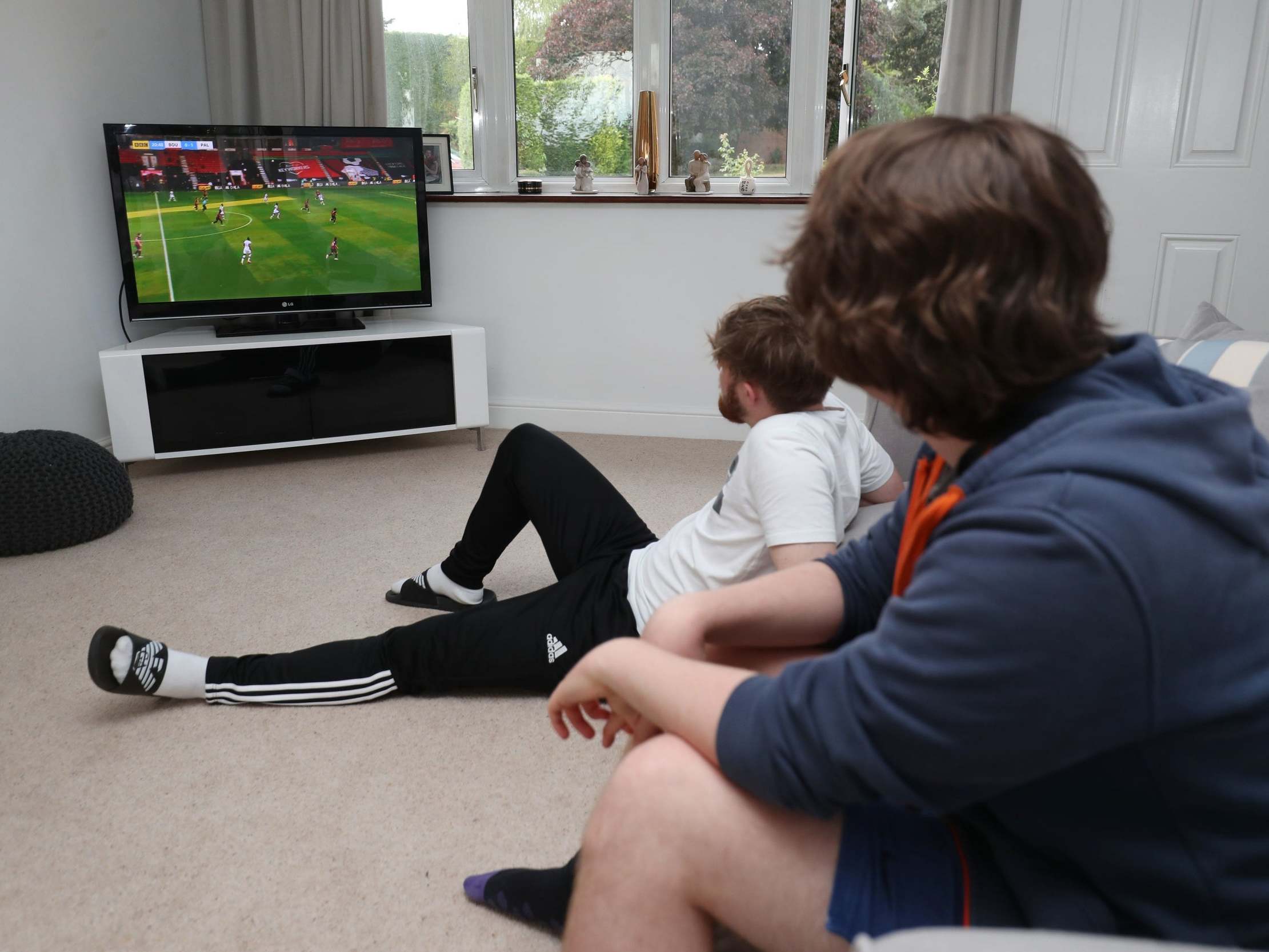BBC pick up the crumbs to make the most of the Premier League’s return to free-to-air TV
The national broadcasters have been able to show live Premier League football for the first time in 32 years due to harrowing circumstances, but when their moment arrived they did more than most to fulfil their duty
It feels a bit odd to celebrate live top-flight football returning to the BBC after 32 years. If anything it was a reminder of the uniqueness of these circumstances.
The peculiarity of a country still to get to grips with coronavirus but waving through this jamboree of football. The distrust of those fans to congregate outside of grounds leading the Premier League into an unprecedented step of putting all remaining games on TV.
A boost for broadcasters, yes. But they were satisfied with confirmation the show would go on. Their remaining slices of the pie were guaranteed.
How that would be divvied up was the next port of call. Of the 92 remaining fixtures, the BBC were handed four games. Four more Premier League games than they were going to show this season. Four more than they’ve shown since 1992.
Even for this generation, live football on terrestrial television is nothing new. Barring coronavirus, Euro 2020 would have been given the bells and whistles treatment by BBC and ITV. From 2021, the FA Cup will be exclusively free-to-air. And the impact of the BBC having these games is tempered somewhat by other broadcasters opening their curtains during this run-in.
Sky, who were due to show 39 games during this run-in, are putting the extra 25 they nabbed on free-to-air, including Sunday’s Merseyside derby. Amazon will do the same for the four they have been given. BT Sport, for now, have decided what’s theirs is theirs.
We know what to expect from a BBC production, and Saturday’s first go at league football since 1988 was a usual blend of familiarity and comfort. Gary Lineker, Alan Shearer and Ian Wright were as close as they could be, with no loss of rapport after months apart. That, in itself felt like progress.
Within the organisation this is seen as a huge deal, but downplaying the significance on-screen was important. Not least because it might seem tone deaf to have a big song and dance while many are still suffering but also because, well, it was only Bournemouth vs Crystal Palace. Their next offering is Norwich vs Everton, then Southampton vs Manchester City, with the final match to be confirmed over the coming weeks. Games that may be inconsequential by the time they come around.
There were no extra flourishes for the occasion, no new innovations or even design tweaks to distinguish this from the BBC’s FA Cup coverage. It’s almost like they haven’t been paying attention to what the Premier League has become.

The broadcasting arms race between Sky and BT has essentially been a story of one-up-manship that morphs football with every development. More money, more cameras at grounds, more co-commentators, more pundits around a table putting more medals on top of it. When BT made a play for Saturdays and midweek, Sky pushed for Friday Nights. Even days of the week are up for grabs. The BBC cannot match this kind of clout.
But what it can do is abide by its duty as a public service. And it is this pillar that saw them break ground on Saturday night as they did for what no others have done – addressed the Black Lives Matter movement, and the part football can play.
For there is still a great ignorance around the movement, some of it embarrassingly wilful, that requires an explanation beyond “racism is bad”. Football fans have sat through many an initiative that have simply disappeared into the background and, with all due respect to Sky and BT, that was reflected in the coverage. A sombre note as cameras focussed on players and referees kneeling in unison and then, on with the football.
But 15 minutes before kick-off, just as viewers were turning over from West Ham vs Wolves, Wright and Alex Scott led a segment on its core meaning, the value of such a universal show of solidarity and how this should not be a false dawn. Lineker and Shearer, to their credit, were able to take a back seat without shirking any responsibility.
I can confidently say that’s the best Premier League match ever broadcast ... on the BBC
That's not to say other broadcasters are ill-equipped to have this discussion or morally inferior for not doing so. But as exclusively sports channels, they can legitimately keep politics out of football, especially with so much of the latter to wash down the hard to swallow bits.
The BBC do not have that luxury with their crumbs from the table. But what they lack in power they can make up for in using the extra time they have not going to adverts to engage in important conversations which occupy football's conscience.
The match itself ended up being much of nothing. Crystal Palace's 2-0 lead after 25 minutes securing the scoreline and points over a lacklustre Bournemouth.
"I can confidently say that's the best Premier League match ever broadcast... on the BBC", grinned Lineker, tongue firmly in cheek, as he signed off. It might have been a low-key return to league football on the BBC, but it certainly was not wasted.
Join our commenting forum
Join thought-provoking conversations, follow other Independent readers and see their replies
Comments